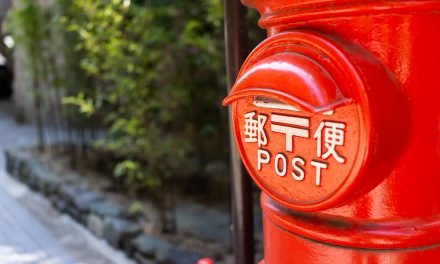
Japan gears up for special parliamentary session for postal privatization
Fresh off a landslide electoral victory, the government of Prime Minister Junichiro Koizumi will get down to the nuts-and-bolts of privatizing the postal service in a special session of Parliament that opens on Wednesday.
The ruling coalition led by Koizumi's Liberal Democratic Party roared to triumph in Sept. 11 elections for the lower house, clinching a hefty two-thirds majority in the chamber and a decisive mandate for postal reform.
The government will get a crack at following through on its campaign promises when Parliament opens on Wednesday, beginning a process expected to lead to a vote on the postal legislation in mid-October.
The top opposition Democratic Party of Japan, in disarray following its devastating defeat last week, was expected to come up with its own proposal _ a development that government officials said they would welcome.
"I think it is a necessary condition for Japan as a whole and for Japan's democracy to have a robust policy debate between a sound government and a sound opposition," said Heizo Takenaka, economic minister and architect of the reform proposal.
Privatization will be a massive undertaking.
Japan Post is about more than just stamps: as a massive bank and insurer, it controls some 330 trillion yen (US$3 trillion; €2.47 trillion) in deposits. The delivery service covers the span of Japan, with nearly 25,000 post offices and some 400,000 full- and part-time workers.
With that kind of reach, the government plan is a broad concern in Japan. Hundreds of thousands of unionized workers are worried about their jobs; millions of customers wonder what will happen to their nest eggs; and rural residents _ particularly the elderly _ fear delivery services could be reduced.
But Koizumi successfully argued in the campaign that splitting up Japan Post and putting it in private hands would not only improve service and slim the bloated bureaucracy, but would also provide for a much more efficient investment of Japan's prodigious savings.
Postal savings have long been used to fund political pork-barrel projects, such as unneeded and costly bridges, tunnels and highways, while the network of postmasters _ some of them prominent citizens in rural villages _ forms part of the LDP's old-style electoral machine.
The Koizumi plan would privatize the postal system by 2017. Under the original bills, the 10-year privatization process was slated to start in April 2007, but the political wrangling over the package has forced the government to delay the launch for some six months, and reports say another delay is possible into 2008.
During the campaign, the Democrats touted an alternative proposal to limit the amount of deposits into Japan Post, but that is being reconsidered following the party's humiliating loss in the election. The party elected a new leader over the weekend, conservative Seiji Maehara.
"We'll review our stance on the bills with the new party head," said Akinori Yasuda, a DPJ policy researcher. "We'll try to come up with a policy as soon as possible … (but) how much it will be different from the old one is up to future discussions."
The LDP has not confirmed a set schedule, but the Yomiuri newspaper reported on Tuesday that the coalition would submit legislation to the lower house next Monday. A vote could come in mid-October, the newspaper said.
Whatever the opposition does, the ruling coalition's resounding success at the polls last week makes very unlikely a rerun of the troubles Koizumi had the last time he tried to push the legislation through Parliament.
The lower house in July barely approved the privatization package, which squeaked through by just five votes. Then reform opponents in the LDP defected in droves to help defeat the measure in the upper house in August.
Koizumi struck back by dissolving the lower house and calling elections _ and winning handily. The election results have apparently changed the minds of some upper house members who blocked the bills last time.
Not that it matters: with a two-thirds majority in the powerful lower house, the ruling coalition has enough votes to override a defeat in the other chamber.












